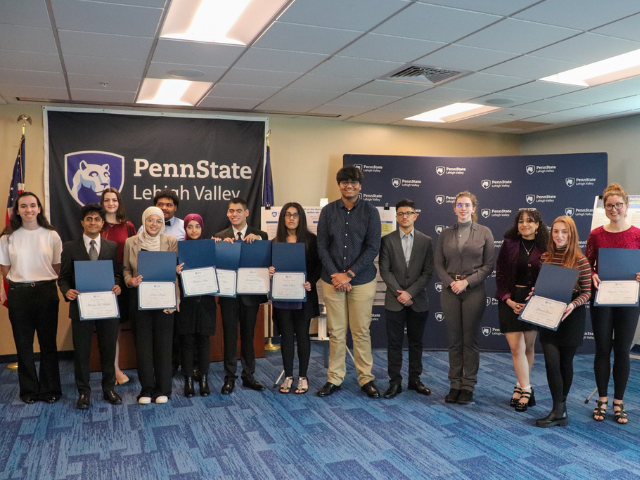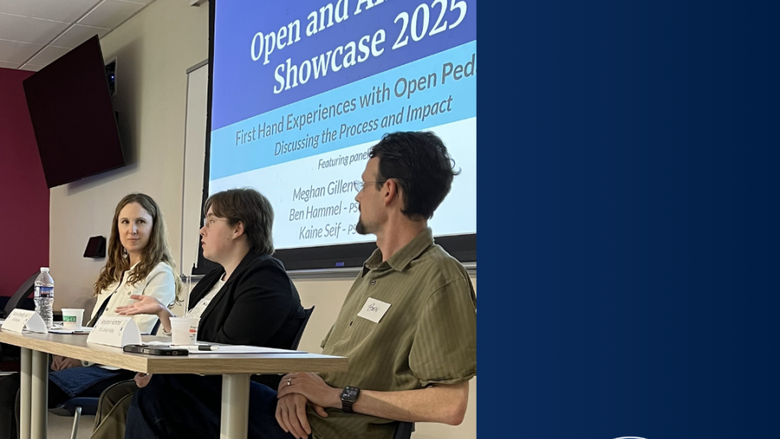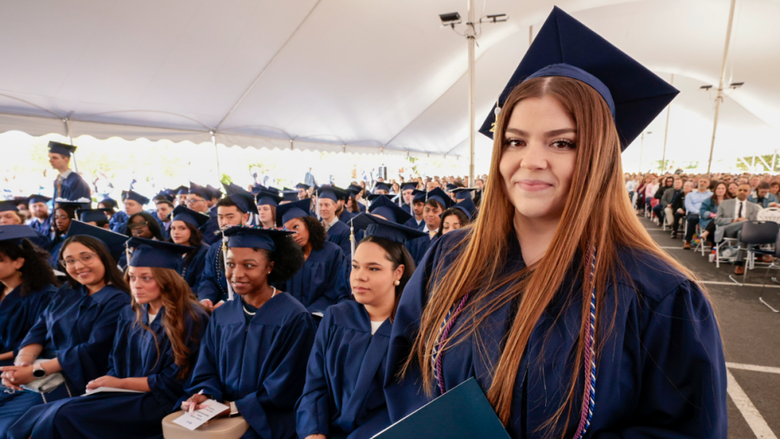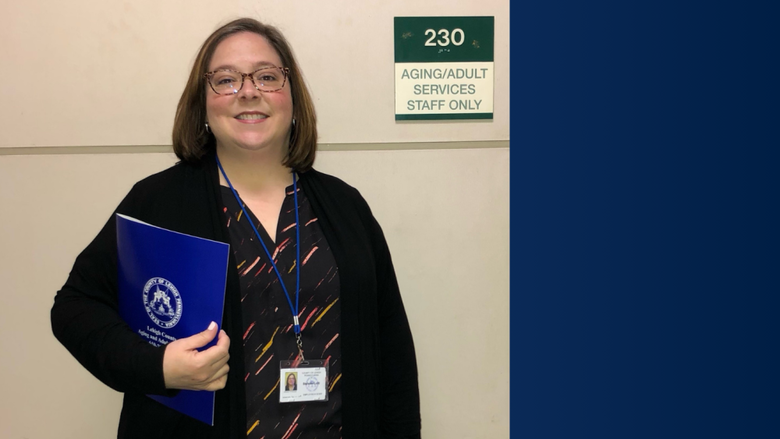
Penn State Lehigh Valley students presented the results of various research projects at the 2023 Undergraduate Research Symposium on April 6.
CENTER VALLEY, Pa. — With topics as diverse as the aquatic health of the Danube Basin in Romania to cross-cultural comparison of ageist attitudes, students presented the results of various research projects at the Penn State Lehigh Valley Undergraduate Research Symposium (URS) on April 6.
Elizabeth Flaherty, coordinator of honors programs and a member of the URS steering committee, said the symposium is an important annual event that showcases Penn State Lehigh Valley’s commitment to student research and scholarship.
“We had a group of very diligent and detail-oriented students,” Flaherty said. “I think sometimes students feel like research is an intimidating concept. Learning more about peers who have conducted undergraduate research exposes students to the reality that they, too, could participate and excel in undergraduate research opportunities.”
Michael Mfarej, a former Lehigh Valley campus student, served as the keynote speaker. Mfarej is an intellectual property practitioner who works with university, startup and large pharmaceutical company clients to develop patent portfolios. After completing his undergraduate studies at the University's Lehigh Valley and Berks campuses, Mfarej published widely on cell signaling mechanisms involved in DNA damage repair, oxidative stress, and chromosome segregation and their roles in the disease etiology of developmental disorders and cancer. Mfarej candidly admitted he was not academically minded as a high school student, but his time at Penn State Lehigh Valley changed his perspective.
“He spoke about his undergraduate research and how it propelled his own academic research beyond college. It was incredibly valuable for our students to hear that,” Flaherty said. “Coming off the pandemic, we have some students who did not excel beyond high school in the way they’d hoped. Our speaker was someone who didn’t see himself as an academic and going to the wild success he’s had — it was really thrilling.”
Students also presented their work before a panel of judges comprised of faculty and staff. Four presentations were awarded first- and second-place prizes. This year, eight poster presentations in STEM (science, technology, engineering and math) and the arts, humanities, business, and social and behavioral sciences were displayed.
“It was an exceptionally difficult year for judging,” Flaherty said. “The research was incredibly competitive and high quality.”
The winners were:
STEM
First place: “Aquatic Health of the Danube Basin: Assessment of Select Areas Within the Braila Islands, Romania” by Samar Latefa and Jonathan Perez. Faculty adviser: Jacqueline McLaughlin.
Second place: “Students’ Usage of Mathematical Applications and Websites and Perception of Plagiarism in Mathematics” by Marjaan Khan and Esha Bains. Faculty adviser: Maryam Kiani.
Arts, Humanities, Business, Social and Behavioral Sciences
First place: “Adverse Childhood Experiences Among Children With Autism Spectrum Disorder and the Question of Ideological Framing of ‘Big Data’ Research” by Gianna Gomes. Faculty mentor: Jennifer Parker.
Second place: “Cross-Cultural Comparison of Ageist Attitudes” by Angelina Roccamo. Faculty mentor: David Livert.
Winners and exceptional runners-up presented their work at the Regional Undergraduate Research Symposium on April 22 at Penn State York. At that event, Perez took second place in the biological sciences and health category (faculty mentors: Jacqueline McLaughlin and Angela Spagnoli), and Gomes took first place in the social sciences and business category (faculty mentors: Andjela Kaur and Teresa Kistler).





